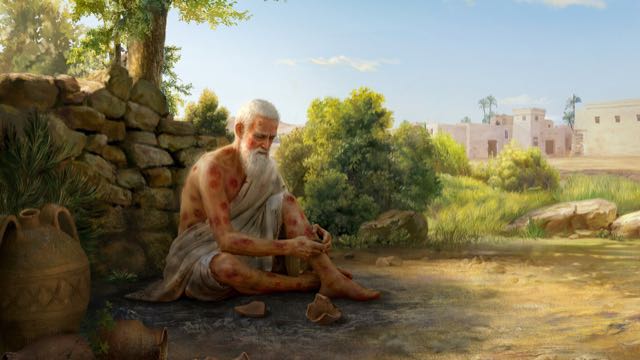Why Did God Command Abraham to Offer His Son Isaac?
It is recorded in the Bible, “And he said, Take now your son, your only son Isaac, whom you love, and get you into the land of Moriah; and offer him there for a burnt offering on one of the mountains which I will tell you of. And Abraham rose up early in the morning, and saddled his ass, and took two of his young men with him, and Isaac his son, and split the wood for the burnt offering, and rose up, and went to the place of which God had told him” (Gen 22:2-3). “And they came to the place which God had told him of; and Abraham built an altar there, and laid the wood in order, and bound Isaac his son, and laid him on the altar on the wood. And Abraham stretched forth his hand, and took the knife to slay his son” (Gen 22:9-10). Whenever reading this part of the scriptures, I really admire Abraham within my heart for what he did: When God commanded him to offer his son, who was born when he was 100 years old, as a burnt offering to Him, Abraham did not argue with or complain about God, but did willingly without condition. From it we can see that Abraham listened and submitted to God, in whom he had sincere faith, and his unconditional obedience is worthwhile to emulate. However, the matter that God commanded Abraham to offer Isaac was incomprehensible to me all the while. When Abraham was at the age of 100, he was given a son by God unconditionally, but why did God ask him to offer Isaac after the boy grew up? How inconceivable! When God ordered Abraham to sacrifice his son to Him, what on earth was His will? I didn’t understand it until I read one passage of His words.
God’s words say, “To man, God does much that is incomprehensible and even incredible. When God wishes to orchestrate someone, this orchestration is often at odds with man’s conceptions, and incomprehensible to him, yet it is precisely this dissonance and incomprehensibility that are God’s trial and test of man. Abraham, meanwhile, was able to demonstrate the obedience to God within himself, which was the most fundamental condition of his being able to satisfy God’s requirement. Only then, when Abraham was able to obey God’s requirement, when he offered Isaac, did God truly feel reassurance and approval toward mankind—toward Abraham, whom He had chosen. Only then was God sure that this person whom He had chosen was an indispensable leader who could undertake His promise and His subsequent management plan. Though it was but a trial and a test, God felt gratified, He felt man’s love for Him, and He felt comforted by man as never before. At the moment that Abraham lifted up his knife to slay Isaac, did God stop him? God did not let Abraham offer Isaac, for God simply had no intention of taking Isaac’s life. Thus, God stopped Abraham just in time. For God, Abraham’s obedience had already passed the test, what he did was sufficient, and God had already seen the outcome of what He intended to do. Was this outcome satisfactory to God? It can be said that this outcome was satisfactory to God, that it was what God wanted, and was what God had longed to see. Is this true? Although, in different contexts, God uses different ways of testing each person, in Abraham God saw what He wanted, He saw that Abraham’s heart was true, and that his obedience was unconditional, and it was precisely this ‘unconditional’ that God desired.” From God’s words, I learned that God commissioned Abraham, so He had demanded that Abraham should offer up his most beloved son to Him; God subjected him to this trial so as to see whether he was a man truly obedient to Him. Abraham took his son to the place of sacrifice, heaped the wood in order, and then bound his son. The instant he, bearing pain to give up what he loved, lifted up the knife, God stopped him from taking Isaac’s life in time. God’s heart was comforted by his action, from which God saw his true heart and sincerity at that moment, and which was the most satisfactory result God expected to see. At the time when God commanded Abraham to sacrifice Isaac, Abraham didn’t know why God gave this command, but he neither argued with nor complained about Him, simply truly submitting to Him. God saw that Abraham could offer his only son to Him, and then what else couldn’t he sacrifice? God was satisfied when gaining Abraham’s true heart. On account of his true heart and obedience, he received God’s commendation and blessings. Jehovah God said, “for because you have done this thing, and have not withheld your son, your only son: That in blessing I will bless you, and in multiplying I will multiply your seed as the stars of the heaven, and as the sand which is on the sea shore; and your seed shall possess the gate of his enemies; And in your seed shall all the nations of the earth be blessed; because you have obeyed my voice” (Gen 22:16-18).
Reading these verses, I sincerely feel that God is practical in His deeds and He will never grant blessings to man out of thin air, since His actions are always principled. Even if He wanted to bless Abraham, he should withstand His test first, because He only blesses man when He sees his true heart. I also perceive that God will not bestow His blessings upon man easily. It seemed that God stripped man and brought suffering upon him, but in fact there were His real love and His expectation toward mankind hidden behind it. Thinking about us in real lives, we can find that God has been arranging various people, matters, and things around us to perfect and change us. Though what we experience are not as astounding as what Abraham went through, there is God’s expectation for us hidden in each and every trifle as well. Yet when speaking of God’s blessings, we frequently reckon that “God should vouchsafe unto me whatever I pray for,” or “I have spent a lot and paid much price and done much work for God, and hence He should give me blessings that I want.” However, these are all our imaginations and conceptions; God is principled in what He does. What He wants is our heart—we can truly give our heart to Him in all manner of circumstances and submit unconditionally to every environment He arranges. Only if we practice and sacrifice in this way can we be blessed and commended by God.
Therefore, when God arranges environments to test us, we should take an obedient attitude to them first, and then seek God’s will. Whether or not the environment we encounter is in accord with our notions and imaginations, we can cast them aside and act in compliance with God’s words; only thus can we obtain God’s blessing. Just like God’s word says, “Those who truly follow God are able to withstand the test of their work, whereas those who do not truly follow God are incapable of withstanding any of God’s trials. Sooner or later they will be expelled, while the overcomers will remain in the kingdom. Whether or not man truly seeks God is determined by the test of his work, that is, by God’s trials, and has nothing to do with the decision by man himself. God does not reject any person at whim; all that He does is so that man may be utterly convinced. He does not do anything that is invisible to man, or any work that cannot convince man. Whether man’s belief is true or not is proved by the facts, and cannot be decided by man. That ‘wheat cannot be made into tares, and tares cannot be made into wheat’ is without doubt. All those who truly love God will ultimately remain in the kingdom, and God will not mistreat anyone who truly loves Him.”
In God’s test, Abraham could sacrifice his only son to God, and thus he got God’s blessings: God will multiply his seed as the stars of the heaven, and God’s management work and God’s commissions will be accomplished in his descendants. In God’s test, Job did not reject God’s name but still praised Him, becoming a perfect man in the eyes of God. Thus, he gained God’s commendation and blessings, and at last died full of days. In the time of Noah, God made Noah build the ark and preach that the earth would be destroyed by flood for over one hundred years. Even though undergoing sundry sneers, persecutions, and slanders of the world, Noah still adhered to the instructions of God, and eventually received God’s salvation that he survived the disaster. … From it we can see God is so lovable and that there is God’s blessing of man in His test. Only if we dare to face God’s tests and seek His will in the environments God arranges, we can surely obtain God’s blessing and grace.
Previous: The Truth of Job's Trials
Next: Why Does God Mourn for Mankind?
- 1Why Is It Hard for a Rich Man to Enter God’s Kingdom?
- 2What Is the Meaning of the Parable of the New Cloth and Old Garment?
- 3What Do the Overcomers in the Bible Refer To?
- 4What Does John 3:36 Mean?
- 5What Is the Church of Philadelphia in the Bible?
- 6Are You Really Worshiping the Lord Jesus at Christmas?








